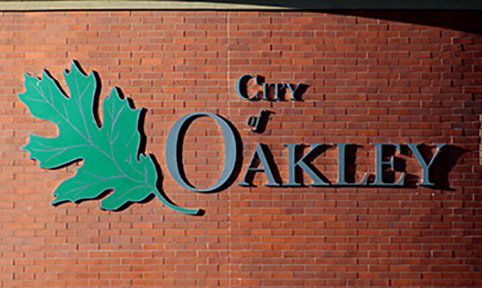On Tuesday, the Oakley City Council will vote on a resolution that will outline its intention to transition from at-large elections for the city council to district election.
The council will first receive a presentation of the overview of the process for creating districts (Agenda Item 5.4) and then vote on a resolution (Item 5.5).
The city currently utilizes an at-large election system – meaning the council is elected regardless of where they live within city limits. A District-based election system would divide the city into separate districts with one council member who resides in each district chosen by electors residing in each district.
According to the city, they received a certified letter on March 13, 2020 from Kevin Shenkman saying the city’s at-large electoral system dilutes the ability of Latinos (a protected class) to elect candidates of their choice or otherwise influence the outcome of Oakley council elections.
In the letter from the Malibu based attorney, it highlights the 2010 Census where Oakley had a population of 35,432 and that the city is comprised of 35% Latinos and likely a greater proportion today. However, Latinos have never been represented on the Oakley City Council in that proportion has been virtually non-existent.
“The contrast between the significant Latino proportion of the electorate and the historical underrepresentation of Latino’s to be elected to the Oakley City Council is outwardly disturbing and fundamentally hostile towards participation from members of this protected class,”
The letter continues.
“In light of the City’s under representation of Latinos, it is no wonder why Latino residents do not emerge as candidates, feel marginalized, and have historically been excluded from meaningful participation in the City’s governance. During the city’s history, there have been only a few Latinos to emerge as candidates for the Oakley City Council. Opponents of fair, district-based elections may attempt to attribute the glaring lack of candidates within protected classes to a lack of interest from their respective communities within Oakley.”
The letter further highlights Dezi Pina, a candidate who twice ran for City Council and lost both elections while claiming he received significant support from the City’s Latino community.
According to election results:
2018 Election:
- 24% (6,067) – Sue Higgins
- 92% % (5,460) – Randy Pope
- 90% (3,997) – Michael Dupray
- 94% (2,726) – Dezi Pina
In this election, both Sue Higgins and Randy Pope won election.
2016 Election:
- 17.38% (4,708) – Doug Hardcastle
- 14.53% (3,935) – Kevin Romick
- 12.71% (3,441) – Claire Alaura
- 12.16% (3,294) – Paul Seger
- 11.41% (3,091) – Michael Dupray
- 9.72% (2,633) – Bruno Korbmacher
- 8.59% (2,326) – Stephen DeMarco
- 8.46% (2,290) – Dezi Pina
- 4.79% (1,296) – Randi Jill Adler
In this election, Doug Hardcastle, Kevin Romick and Claire Alaura won election.
The city also said while they did receive the March 2020 demand letter, the Governor suspended the CVRA action in response to COVID-19 pandemic—a process that basically caps California Voting Rights Act of 2001 litigation at $30,000 under AB 350. Those executive orders expired on June 30, 2021.
The city now has 45-day period to act and will be required to hold 5 public hearings within the 90-day framework to give the community an opportunity to weigh in on the composition of the districts and draft maps as well as sequence of elections.
The move will cost the city up to $50,000 for a demographer and possibly other consultants as well as reimbursing the plaintiff for its documented attorney fees of costs up to $33,000.
If approved, city staff would initiate the process to establish by-district elections to avoid costs associated with defending a lawsuit based on the California Voting Records Act.
Last March, then Oakley City Manager Bryan Montgomery stated the city would likely move to District based elections.
It is unclear if the City of Oakley would consider moving to an elected mayor with a 4-year term and creating 4-districts versus creating five districts for each of the city councilmembers.
In the past few years, letters have been sent to the cities of Antioch, Brentwood, Concord, Martinez along with both the Antioch Unified School District and Martinez School District to switch from “at large” to “District” elections. No city or district has been able to comply with the California voting Rights Act of 2001 unless they moved to Districts.
The City of Santa Monica fought the move to District and ended up spending $7 million in legal fees and the plaintiff requested $21 million in attorney fees and $1 million in costs as prevailing parties. The court trial is scheduled for Sept. 2020.
Oakley City Council Meeting
July 13 at 6:30 pm – Full Agenda


1 comment
Why District elections do not work. SEE CITY OF ANTIOCH!!!!!!!!!!!
Comments are closed.